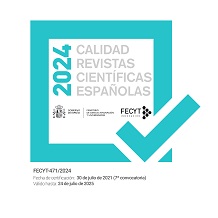The knowledge of health professionals in prophylaxis of HIV vertical transmission in a Brazilian public maternity
Abstract
The objective was to assess the knowledge of health professionals who care for pregnant HIV positive, as prophylactic measures the risk of vertical HIV transmission. Cross-sectional study involving 25 health professionals. Data collection took place from April to June of 2012 in a public hospital in the State of Goiás, Brazil. Of the professionals surveyed 76% had inadequate knowledge about HIV testing in pregnant women, 80% unaware that gestational age is held elective caesarean section when viral load is greater than 1000 cop / ml, 66% could not attack dose for AZT and the elapsed time before delivery, 84% did not know which method is suitable for inhibition of lactation. Concludes as necessary the implementation of strategies aimed at training health professionals who care for HIV positive pregnant women in the workplace.Downloads
The works published in this magazine are subject to the following terms:
1. The Publications Service of the University of Murcia (the publisher) preserves the copyright of the published works, and encourages and allows the reuse of the works under the license for use stated in point 2.
© Servicio de Publicaciones, Universidad de Murcia, 2011 (© Publications Service, University of Murcia, 2011)
2. The works are published in the electronic edition of the journal under Creative Commons Reconocimiento-NoComercial-SinObraDerivada 3.0 España(texto legal) “ a Attribution-NonCommercial-NoDerivatives 3.0 Spain license (legal text)”. They can be copied, used, broadcasted, transmitted and publicly displayed, provided that: i) the authorship and original source of their publication (journal, publisher and URL) are cited; (ii) are not used for commercial purposes; iii) the existence and specifications of this license is mentioned.
3. Conditions of self-archiving. Authors are allowed and encouraged to electronically disseminate the pre-print (pre-reviewed ) and / or post-print (reviewed and accepted for publication) versions of their works prior to publication, as it ensures a wider circulation and dissemination which may lead to a possible increase in its mention and a higher scope among the academic community. RoMEO color: green.













